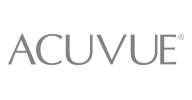7 Foods You Can Eat to Improve Eye Health
A carrot a day keeps the eye doctor away, or so the story goes. We’ve all been told that certain foods can sharpen our vision or improve eye health—but is there any truth to that common wisdom?
If you’re wondering whether packing the right foods onto your plate can help your eyes, we’re here to help. Let’s take a look at how healthy eating can improve your ocular health, as well as a quick list of the best foods you can add to your daily diet.
Can You Really Improve Eye Health With the Right Foods?
Let’s get one thing out of the way: eating the right foods won’t help you correct refractive errors in your eyesight. All the carrots in the world can’t help you reverse nearsightedness or astigmatism, nor can they give you 20/20 vision without your glasses or contacts.
However, certain vitamins, minerals, and other nutrients play a vital role in our eye health, meaning that they can improve our eyes in other ways. The right nutrients can help with everything from dry eyes to protection from conditions like age-related macular degeneration (AMD). Getting a rainbow of the healthy foods below onto your plate can help care for your eyes from the inside out!
1. Fish
Omega-3s have become a buzzword in the world of nutrition in recent years, and for good reason. These essential fatty acids are a part of every cell membrane throughout your body, meaning that they play a significant role in your overall health.
When it comes to eye care, omega-3s can help in a few key ways. First, they can protect your eyes from conditions like glaucoma or AMD. They can also help you avoid dry eye and meibomian gland dysfunction.
Note that you can get both types of necessary fatty acids—DHA and EPA—from fatty fish like tuna, salmon, and trout, although some fish are healthier than others. If you don’t eat seafood on a regular basis, a nutritional supplement can help as well.
2. Eggs
It’s hard to beat the number of nutrients packed in a simple egg. Boasting zinc, lutein, and zeaxanthin, as well as vitamins A, C, and E, they’re a great resource when it comes to better eye health. Even better, the presence of zinc can help your body better use the lutein and zeaxanthin!
3. Beans and Legumes
If you’d rather turn to vegetarian food sources, beans and legumes should already be a staple of your diet—and for good reason. These low-fat, high-fiber foods have been shown to help with conditions like AMD while sharpening your night vision.
Certain beans are also high in zinc, which plays a key role in maintaining your normal ocular function. For the most eye-friendly options, look to chickpeas, black beans, and lentils, the last of which are among the healthiest options thanks to their high fiber content and low saturated fat.
4. Orange-Colored Fruits and Vegetables
You might be surprised to know that there’s a kernel of truth in the common wisdom about carrots helping your eyesight!
This is because foods like carrots, cantaloupe, mangoes, and apricots are high in beta-carotene, which is a type of vitamin A. This crucial vitamin can help with night vision, sharpening your ability to see in the dark.
If you’re trying to eat more foods that are rich in vitamin A, it’s worth noting that sweet potatoes have even more beta-carotene than carrots do! They also have half of your daily recommended vitamin C as well as a healthy dose of vitamin E.
5. Leafy Greens
Dark leafy greens like spinach, kale, and collard greens are rich in the essential vitamins your eyes need, including vitamins C and E. In addition, they’re packed with both lutein and zeaxanthin, important carotenoids that can help lower your risk of conditions like AMD and cataracts. This combination of antioxidants can help protect your eyes from free radicals that can attack their cells.
If leafy greens aren’t your thing, other green veggies like broccoli, brussels sprouts, avocado, and peas also offer these antioxidants.
6. Nuts and Seeds
No matter which kinds of nuts you love, from almonds to walnuts, chowing down can help you get essential fiber, protein, and—most importantly—fatty acids. Some nuts, like hazelnuts and almonds, are richer in antioxidants like vitamin E than others. The same is also true of seeds like sunflower seeds, which are also a great source of zinc.
7. Citrus Fruits and Berries
Vitamin C is a crucial nutrient when it comes to eye health, as it can slow the progression of visual acuity loss as you age, and it can even lower your risk of developing cataracts. Some of the best natural resources of this antioxidant are citrus fruits and berries.
To pack in the vitamin C, look for oranges, grapefruits, and lemons, as well as blueberries and strawberries.
Rethink Your Meals for Better Eye Health
At the end of the day, your diet can help you protect and improve eye health for the long run—as long as you’re putting the right foods onto your plate! The vitamin- and nutrient-rich foods on this list are a great way to make sure you’re giving your eyes the health boost they deserve. In addition to a healthy eye care routine, they can ensure that your eyes stay healthy for longer, and they can even contribute to your overall wellness!
As you work to protect your eyesight, don’t forget that our team is here to help. At Cedar Park Vision, we’re here to offer state-of-the-art eye care treatment and comprehensive services to maintain your vision. Reach out to us for an appointment to get more personalized insights on how to care for your eyes!

















Leave a Comment